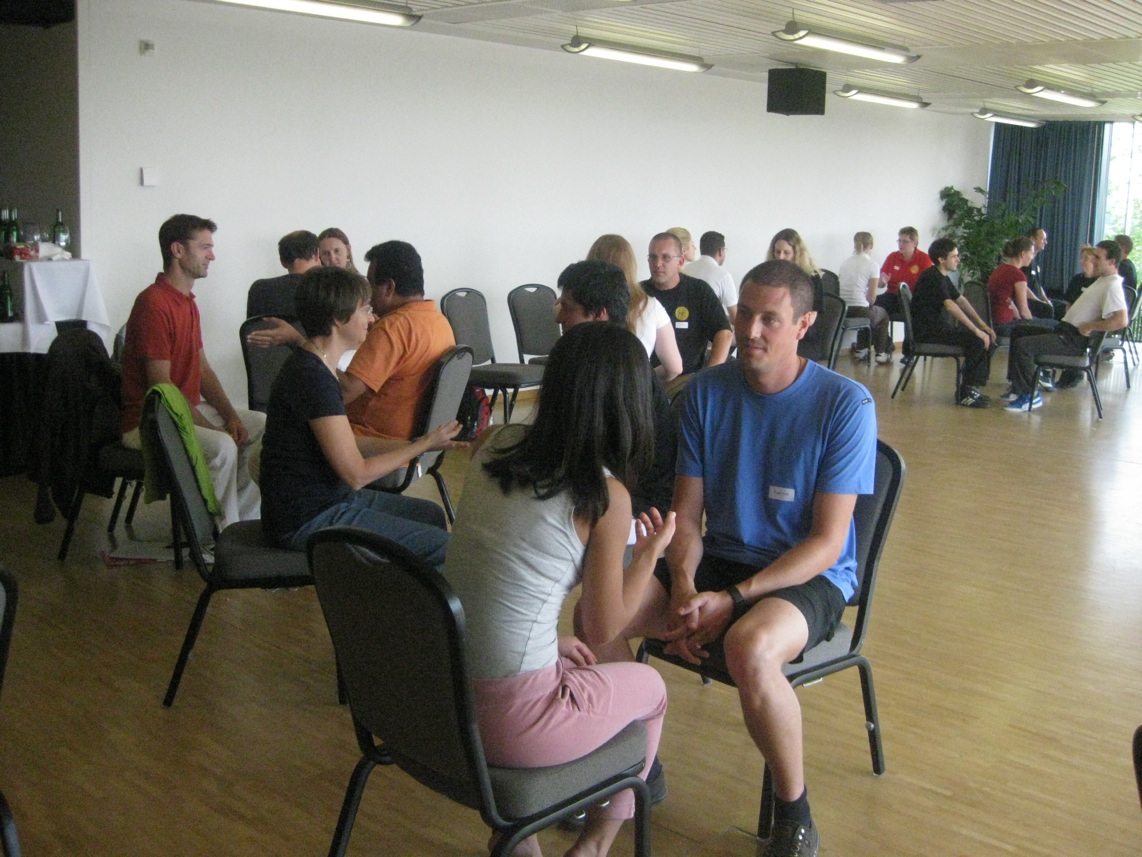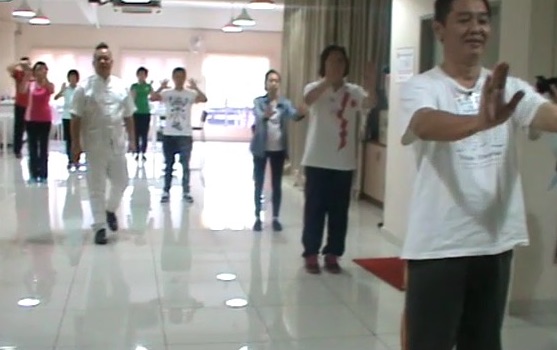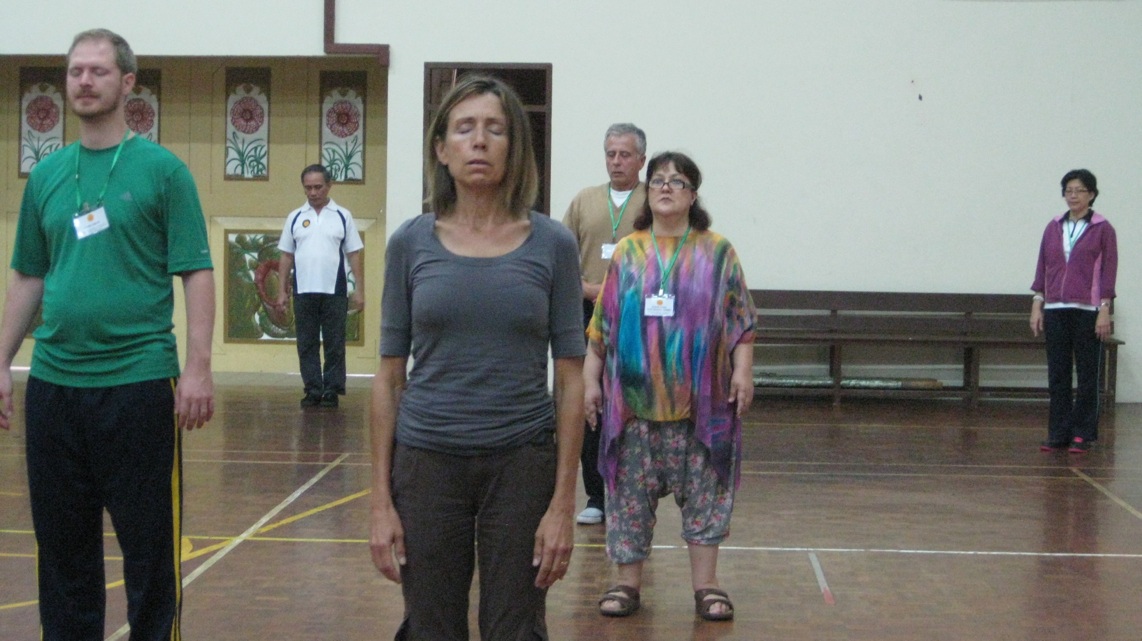SELECTION OF QUESTIONS AND ANSWERS
OCTOBER 2016 PART 2

Practical work during a Zen course
Question 1
Concerning marketing Zen and Business courses; I ordered some books on line but haven't read all of them yet. It seemed to me originally that I should study about marketing, however your email seemed to sum it all up that we simply connect customers with our product.
— John, Ireland
Answer
My approach to marketing Zen courses and courses to business executives is very simple. Just do it, i.e.just market our courses to business executives. This is Zen. You don't have to waste time studying key points about marketing or acquiring knowledge about creating videos, etc.
Just market our Zen courses and courses to business executives. If in the process of marketing the courses, you have to study key points about marketing or acquiring knowledge about creating videos, then do so. Otherwise, don't waste your time and effort.
Suppose marketing our courses is A, and other tasks like studying key points, creating videos, etc are B, C, D, E and F.
You do A. If in the process of doing A, you also need to do B and C, then you do A,B and C. Don't waste your time and effort doing B, C, D, E, F and any other tasks first, then do A.
Question 2
I see my immediate role as:
- studying some key points about marketing and business
- creating a Wahnam Corporate website
- acquiring knowledge/ know-how related to creating videos, editing visual and sound, uploading and creating opportunities to acquire relevant footage for the above videos
- trying to ascertain what kind of businesses would be interested in us and getting the word out there through 'guerrilla marketing'
Answer
When you understand the above strategy, you need not have to worry about the points mentioned. But I shall still briefly discuss them for your sake.
- studying some key points about marketing & business
Don't waste your time; you may not have any more energy left for marketing to business executives after this.
- creating a Wahnam Corporate website
Do it only when necessary. Your aim is to market to business executives, not to create a Wahnam Corporate website. But if it is necessary or helpful in your marketing, then do it.
- acquiring knowledge/know-how related to creating videos, editing visual and sound, uploading
Don't waste your time and energy, unless it is necessary in your marketing.
- creating opportunities to acquire relevant footage for the above video
Don't waste your time and energy. Just market to business executives.
- trying to ascertain what kind of businesses would be interested in us and getting the word out there through 'guerrilla marketing'
Don't waste your time and energy. Just market to business executives.

The 36 Strategies written in bamboo stripes
Question 3
I never took a 36 Strategies course but I guess that marketing is creating a demand' for our product.
Answer
The 38 Strategies are some of the best strategies from top strategists, like Sun Tzu and Zhu Ge Liang, in Chinese warring history. These strategies are applicable in today's business world and daily life. These 36 strategies are given in 6 courses, with each course dealing with 6 strategies. There is a lot of practical work for each course.
Irrespective of whether one is a business executive, he should not miss any of these courses. The strategies will enrich his life.
Some people, especially those with high moral values, may be concerned in using these strategies, thinking that their application may involve cunniness, or at best it would be unfair to their opponents.
The strategies are neutral. It is their application by the strategist that raises moral questions. We always use the strategies in an honourable way and strive for a win-win situation.
Creating a demand for a product is an important part of marketing. But a more important part is to connect the customers with the product.
In other words, first we create a demand. Then we connect the customers with the product.
If the demand is already there, or if you can straightaway connect the customers with the product, there is no need to create the demand.
This is the case with business executives' courses and chi kung courses to overcome illness or to promote good health, vitality and longevity. The demand is already there. So there is no need to create a demand. Business executives want to do well in their business as well as in their daily life. Sick people want to get well. Those who are not sick want to remain healthy and to have vitality and longevity.
But these people do not know about the effectiveness of our executives' courses and chi kung courses. Worse, many of them have a misconception of chi kung, thinking that it is just some form of gentle exercise for people who lack the energy to play games. Your job as a strategist is to connect them with our executives' courses and chi kung courses, not with the type of chi kung the public generally conceptualise it to be.
We work from a position of strength. There are literally tens of thousands of people who need such products. As far as I know, we are the only school that can provide such products. But we must make very sure that out students are rewarded many times over the fees they pay.
Question 4
I recall in one of the Question-Answer series, Sigung mentioned that after Chi Kung practice, we can think of the benefits we gained from the practice to be transferred to another family member.
What is the technique for this? What kind of tangible benefits can the person we are thinking of gain?
— Stephen, USA
Answer
The technique for transferring benefits of chi kung practice to another family member, or to another person or persons, including strangers, is simple. You just say it in your heart, silently or aloud. What is important is sincerity and being in a chi kung state of mind.
The benefits that the person or persons get, are whatever you transfer. I clearly remember an occasion that a student told me she frequently thought of her sister when she practiced chi kung, and for no apparent reasons her sister recovered from cancer!
Long before this example I received an invaluable lesson from my mother. She told me that the one who blessed is more blessed than the one who received the blessings.
Goodness when shared is doubled. Although we may never think of being rewarded, we will be richly rewarded whenever we do good. The very moment you transfer your benefits to a family member, you are doing good, and immediately you feel happy, which is a condition for good health.

Being a good student is the first step to becoming a good teacher
Question 5
I really want to become a teacher. Could you please tell me the next step. My aim is to build an academy teaching chi kung, meditation and coaching. I am being asked by lots of friends and a centre if I can teach them but I have told them that I can't. Could we really move forward in this. I really have so much passion to help others
— Qasim, USA
Answer
The first thing you need to do is to become a good chi kung student. I suggest you attend the Intensive Chi Kung Course in Sabah around March next year. Please check my website for the dates which will be announced soon. You do not need any prior chi kung experience to attend my Intensive Chi Kung Course.
But if you wish to attend my Intensive Shaolin Kungfu Course or Intensive Taijiquan Course, you need some prior Shaolin or Taijiquan experience respectively. These courses were originally meant to teach instructors of other schools and would-be instructors of Shaolin Wahnam internal force and using Shaolin or Taijiquan techniques for combat.
Please take note that attending these intensive courses does not mean that you will be appointed an instructor eventually. Various factors are considered when I choose instructors for our school, one of which is seniority. We have a lot of potential instructors in our school, and frankly you are far behind them in seniority.
Coaching is not part of our repertoire. So I shall not comment on it.
Question 6
I was amazed to hear you said that, depending on circumstances, seeing a prostitute needed not necessarily be a sin. But you suggested that watching pornography would be harmful,
I think that prostitution is a kind of pornography, and is at a worse and more dangerous level. Was my understanding wrong? I wonder because I can think of two examples when I advised people in the past, but now I am asking myself if I was being too puritanical.
— Paul, Ireland
Answer
Visiting a prostitute (and having a sexual relationship with her) and seeing pornography are two different issues, just as applying a kungfu combat sequence on an opponent and seeking other martial artists for free sparring are two different problems. If one is wrong, it does not necessarily mean that the other is wrong too.
fn the case of visiting a prostitute and seeing pornography, being right and wrong is subjective, and depends on various circumstances as explained in my answer to Question 8 in the June 2015 Part 1 issue of my Question-Answer Series.
Personally I am sympathetic to prostitutes, and consider them serving an important social need.
Depending on the circumstances of those who sought your advice, you might or might not be puritanical. If there was an urgent need to see pornography and it brought the person pleasure and others no harm, like the example of the girl you mentioned, it would be advisable for him or her to do so. If it caused the person harm, like becoming addicted to it, it would be highly inadvisable.
Editorial Note: Paul's other questions can be accessedd at the October 2016 Part 1 issue of the Question-Answer Series.

Spiritual cultivation is cultivating the spirit
Question 7
An ex-girlfriend told me she really enjoyed watching pornography, and that she wanted me to watch it together, as she had done with previous partners. I not only declined, but I told her I didn't think she should watch it on her own either. I told her I thought it would spoil her appetite and enjoyment of the real thing.
Answer
The real thing, with willing partners, is surely more enjoyable and more rewarding than watching pornography.
Question 8
I have a friend from another kungfu school. We went to a pub one evening, and then he suggested we should go to a nearby establishment with female exotic dancers afterwards. I said no, but I also told him that I didn't think he should go either. Again I didn't give a religious reason, I told him he would be better to spend his time looking for an actual girlfriend.
But the answer to Question 8 in the June 2015 Part 1 issue has made me doubt myself, not so much for those two people who probably ignored my advice anyway, but what if I caused them unnecessary guilt or even a blockage, or I might do so in future to people who might respect my advice more. Was my advice correct in the first place?
Answer
Your advice is generally correct, though in special circumstances, like if his sexual urge is so strong that if not for the female exotic dancers, he may have done something worse, I would give him some allowance.
But your feeling that you might have caused him and others in similar situations, in the past or in future, unnecessary guilt or any emotional blockage, is unwarranted. It is unlikely that he or others like him would feel the way you suggested. So your worry is unnecessary.
While having high moral values is an important part of religious education, it is helpful to remember that having high moral vales and religious education are separate issues. A persona may have high moral values yet not religious. On the other hand, a religious person may not necessarily have high moral values.
It is also helpful to remember that morality and religion are also different from spiritual cultivation. A person of high morality may not believe in the spirit. Hence, he may not spend time in spiritual cultivation.
A highly religions person may not be highly developed spiritually. He may, for example, be easily afraid, which shows that his spirit is weak.
On the other hand, a person who has cultivated his spirit to a high level may not have high moral values. Black magicians are a good example. Similarly, a high spiritual person may not believe in any religion.
Nevertheless, people who are highly developed spiritually usually have high moral values. They may or may not follow a particular religion, and if they do they are sympathetic to other religions.
LINKS
Selected Reading
- 36 Strategies for Entrepreneurs and Business people
- What is a Zen Master?
- Combat Application of Taijiquan
- Dragon in Zen
- An Art for Masters Taught by a Grand Master
